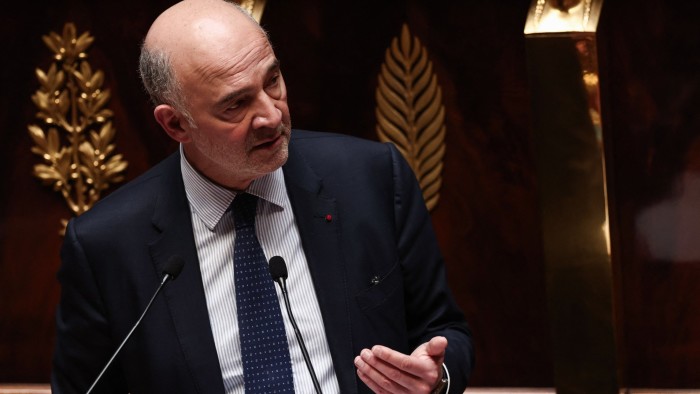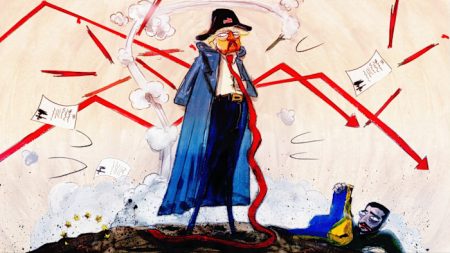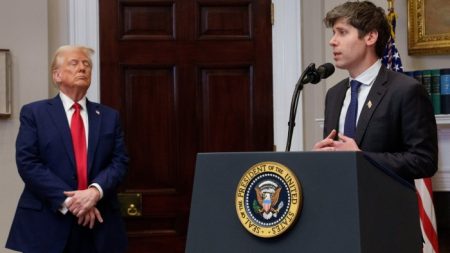Unlock the Editor’s Digest for free
Roula Khalaf, Editor of the FT, selects her favourite stories in this weekly newsletter.
The French government’s surprise proposal to scrap two national holidays to help cut the deficit “remains to be proven” as a policy, said Pierre Moscovici, the head of France’s national auditor, as he urged politicians to compromise to pass the draft budget.
Opposition parties have pushed back at the plan, saying it would punish workers, and polls suggest it would be wildly unpopular.
Asked whether the idea would be effective, Moscovici was non-committal, noting it was not his role to opine on policies in the €44bn fiscal package.
“That remains to be proven. It is one of the things that needs to be documented,” he said in an interview with the Financial Times.
Moscovici, a former Socialist finance minister and European commissioner, commended the scale and ambition of Prime Minister François Bayrou’s road map to narrow the deficit, but warned the hardest was yet to come as the draft still had to be presented to parliament.
At the head of a minority government, Bayrou has staked his fate on negotiating with the opposition to pass his proposed budget for next year. The measures announced on Tuesday included a spending freeze on all areas including pensions and social welfare benefits but excluding defence.
Bayrou said he wanted to eliminate two days of national holiday to generate about €4.2bn more in revenue annually. Another pledge was to tighten eligibility for unemployment payments.
Moscovici said: “The prime minister was right to say this is a moment of truth — we can’t keep going down the same path of rising debt. All the efforts he’s calling for are justified, and France cannot afford to do less.”
Bayrou faces swing blocs in the national assembly, namely the Socialist party and the far right Rassemblement National led by Marine Le Pen, and must persuade them to abstain in a no-confidence vote that will invariably occur over the budget.
Moscovici said of the Socialists: “They don’t want to bring down the government — they know that stability is a good thing . . . But they can’t just be crutches for the government, they must be respected.”
France’s deficit ballooned to 5.8 per cent of GDP last year, the second worst in the Eurozone after Slovakia. The aim is to narrow the deficit to 4.6 per cent next year, although analysts doubt that is realistic. The overall national debt will continue to rise in the coming years.
The plan to cut holidays is expected to be a flashpoint in talks with Socialists and the RN.
Bayrou cast the additional two days of work as necessary to boost economic growth and tax revenue, adding “the entire nation must work more . . . to improve France’s situation”.
Economists at Rexecode found French people (those in full and part-time jobs, as well as the self-employed) worked 1,607 hours annually versus the European average of 1,674. But they worked more than those in Germany (1548 hours) and the Netherlands (1,364 hours).
Opposition figures have said the burden of scrapping holidays would only fall on those already in work, while economists have long emphasised that France’s major problem is a lower employment rate overall.
The employment rate for 55- to 64-year-olds is 56 per cent, compared with a 59 per cent average in EU countries and 61 per cent across the OECD. Only about half are still working when they reach 62.
Clichés that French workers were lazy or that the 35-hour workweek was to blame “were simply not true”, said Moscovici.
He said he hoped a consensus would be found on the budget to avoid political and economic “instability”, but played down the prediction by some government ministers that France could face a full-blown financial crisis.
“It is totally false to think that we are like Greece in 2010. Nor are we at risk of an intervention from the IMF,” he said. “I tend to think that the first real threat we face is rising interest rates.”
France spent roughly €25bn in 2020 in interest payments at all levels of government; it rose to more than €60bn in 2024, and is projected to reach €100bn by 2029. Interest costs are forecast to become the single-biggest area of government spending ahead of education.
“The snowball has already started rolling, and the cost of our debt keeps growing,” Moscovici said. “The real question is how fast? For now, we’re not yet caught in the avalanche rolling downhill.”
Read the full article here













